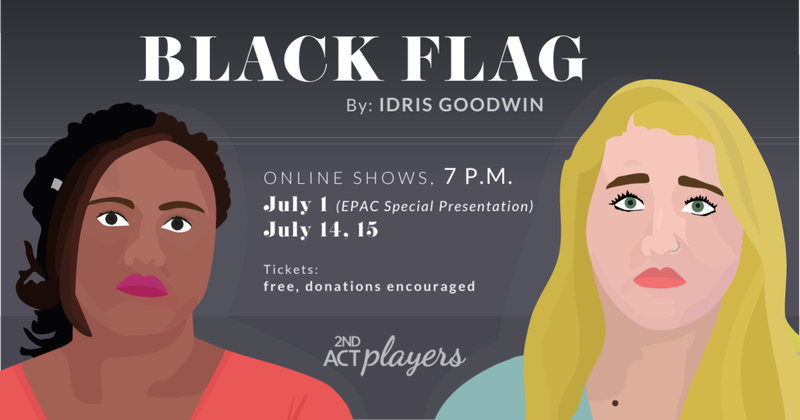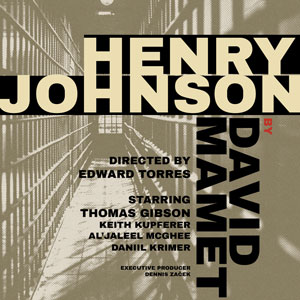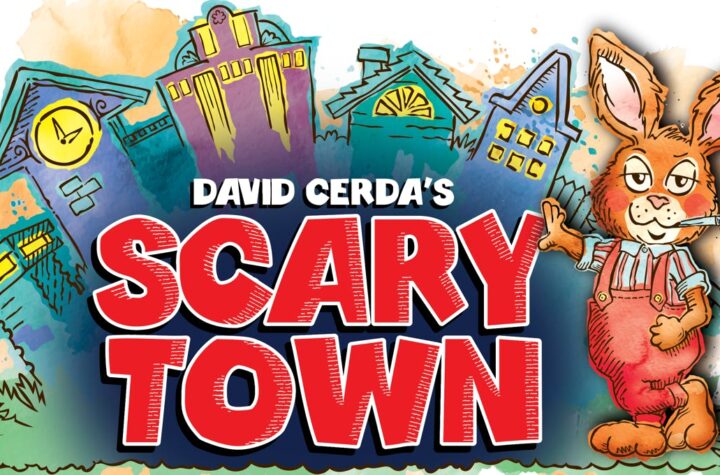
 Somewhat Recommended ** “Black Flag” tells the story of two freshman students—Deja (Tia Philip), a black woman from Detroit, and Sidney (Lilli Whittier), a white woman from Georgia—who find themselves randomly assigned to be college roommates. In the process of unpacking all their possessions, Sidney takes out the Confederate battle flag that her mother has so neatly packed and states that it is a symbol of her Southern pride and her family’s history. She initially asks Deja if she could help her hang it up in their room (which Deja refuses to do). But when Deja is confronted by it hanging on the wall, she states blankly, “It’s on your side of the room.” This line plus Deja’s visible lack of emotion saps the energy right out of the performance. Immediately the tale doesn’t ring true. Whatever happened to having a reasonable conversation about the subject of the flag and its significance? In spite of the film’s provocative themes, the constant diffusion of tension throughout turns a promising concept into a disappointment.
Somewhat Recommended ** “Black Flag” tells the story of two freshman students—Deja (Tia Philip), a black woman from Detroit, and Sidney (Lilli Whittier), a white woman from Georgia—who find themselves randomly assigned to be college roommates. In the process of unpacking all their possessions, Sidney takes out the Confederate battle flag that her mother has so neatly packed and states that it is a symbol of her Southern pride and her family’s history. She initially asks Deja if she could help her hang it up in their room (which Deja refuses to do). But when Deja is confronted by it hanging on the wall, she states blankly, “It’s on your side of the room.” This line plus Deja’s visible lack of emotion saps the energy right out of the performance. Immediately the tale doesn’t ring true. Whatever happened to having a reasonable conversation about the subject of the flag and its significance? In spite of the film’s provocative themes, the constant diffusion of tension throughout turns a promising concept into a disappointment.
Written by Idris Goodwin, “Black Flag” was adapted and directed by Sophia Capp and edited by Capp, Corrina Leatherwood, and Anika Grevstad. This fifteen-minute film opens up a plethora of critical issues having to do with how blacks have traditionally had to accept symbols of the Confederacy as somehow being “natural and normal” despite that fact that the Civil War ended almost 150 years ago and that so many people (black, brown, white, and otherwise) consider the Confederate flag to be a symbol of slavery, racism, and hate. Although the film is related to events that took place in 2014 and 2015, Goodwin’s script can easily form the basis for a discussion of divisive politics in more recent years, for example, starting with the “Unite the Right” rally in Charlottesville, in 2017. However, the script assumes that its audience is already familiar with the many important issues and controversies that are brought to mind concerning the existing racial and cultural divide in America.
In addition, the story confounds two levels of human interaction: that of group dynamics about the meaning of a political symbol (whether it is the Confederate flag, the American flag, or something else) versus how people get along on a daily basis and negotiate privately with others to come to terms with their individual perspectives and opinions. For example, if my college roommate wanted to hang up a Confederate flag or a Nazi flag (or wave a red flag in front of a bull), I would say something like, “That doesn’t cut it.” Or “That’s offensive to me; you must take it down.” Or at the very, very least, I might say, “Let’s each put up decorations that we can both feel good about, since we’re living in this room together.” I would kindly say, “I respect your mother’s gift to you, but she is not the one sharing this room.” The bottom line is that issue of the flag and its symbolism should have triggered some kind of discussion—any kind of discussion—about politics, culture, history, and race. We understand that Deja doesn’t want to make waves and prefers to go along to get along. But by the time she has hit college-age, she ought to express some kind of opinion out loud, even if she eventually caves in to her roommate’s wishes. An important part of higher education is learning how to argue without being argumentative and how to defend a point without being defensive; this holds both in the classroom and among peers. Even if Sidney is clueless about racial and cultural sensitivity (to say the very least), Deja need not act so docile in an intimate environment such as a college dorm room. This uncomfortable situation could have provided a good opportunity for Deja to raise her roommate’s awareness by offering her a new perspective on the flag. However, the film largely skirts this issue.
This brings up a much larger topic: I could tell that a man wrote “Black Flag”, because women do not act so ridiculously passive in real life. Of course, I am generalizing here, as everybody’s personality is different. But would the playwright have allowed a black man to have simply shrugged his shoulders when he sees a Confederate flag being hung up in his shared room?
When Sidney discovers that Deja finds the flag offensive, it is not because Deja says as much but because she steals her diary and reads it. The reading of the diary advances the plot, but Deja should have reacted much more strongly to having her privacy invaded. Piques of anger, thoughts of revenge, or simply yelling, “How dare you do that!” –or calling a roommate every name in the book or even throwing something at her—would have worked. This would have been more honest and real. Just because these two women are relatively quiet people (and don’t come to blows) doesn’t mean that offense isn’t being taken. Although it’s a stereotype that girls tend to write in diaries more than boys do (and once again, that’s probably a reason why the playwright focused on two women rather than two men), nobody wants their very personal writings read by others without their expressed permission. Would a man (black or white) simply “take it” in the event that his most intimate thoughts were suddenly being revealed to an almost stranger? Maybe Deja had been beaten down in an earlier life and perhaps that why she might have felt intimidated. But I was waiting to see her blossom and become more assertive as the plot unfolded, especially after her (white) boyfriend (Jareth Spirio) confronts Sidney about the meaning of the Confederate flag. Then it is Sidney who is offended by the display of the California Republic flag on the t-shirt that he wears. But note that it is a man (and not a woman) who initiates the political discussion while his girlfriend tries to shut him up. Perhaps if Deja were originally from the South, rather than from Detroit, and if this story had occurred sometime in the early 1960s rather than during academic year 2014-15, her reticence might be better explained.
The summer of 2020 brought with it not only the tearing down of Confederate flags and statues of Confederate generals, including that of Robert E. Lee, but also the tearing down of Columbus statues. The larger question is this: Is his statue a symbol of the murder of indigenous peoples on this continent or a symbol of social and economic promise for past generations of European immigrants? As the fabric of our culture is slowly polarizing into a tale of two nations and two competing interpretations of our history, it appears that we are currently on the verge of a second civil war for the hearts and minds of what it means to be an American. All that being said, the reality on the ground here in Chicago is that the Columbus statue has been taken down; the Ida B. Wells statue is now up; and Lake Shore Drive has been renamed in honor of Jean Baptiste Point DuSable. As one ethnic culture morphs into another and as our national culture goes through a war of monuments, we are witnessing which symbols survive and which ones fade when one group gains preeminence over another.
Aptly named, “Black Flag” has to do with America’s Original Sin of slavery and the terrible schism that this has created over the decades through the present-day. (Note that the term has to do with the white skull and crossbones flag on pirate ships and is associated with poison.) The story alludes to today’s deep cultural clashes and the struggle for ideology. But unfortunately, the characters don’t go far enough in fleshing out their arguments or stirring up raw emotions. When the script is not sufficiently impactful, the film does not live up to its potential. I would have liked to participate in an aftertalk with the producers and the virtual audience members so as to adequately examine the many important themes being raised by the film, especially those having to do with the meaning of individual freedom, the uses of violence, and the dichotomy of national opinion.
Originally released in April 2020, “Black Flag” is a special streaming presentation took place on July 1 as part of the 2nd Act Players involvement with the Evanston Performing Arts Collective and was shown on EPAC’s YouTube channel.
The two encore presentations on July 14 and July 15 are being shown online via Crowdcast and will be livestreamed at 7 p.m. each evening.
Admission is free-of-charge but donations are strongly encouraged.
For more information and to reserve your virtual spot, please go to: https://evanston2ndactplayers.com/.
Note that approximately 80% of all donations will be given to the National Memorial for Peace and Justice, at the playwright’s request.
To see what others might be saying, visit www.theatreinchicago.com, go to Review Round-Up and click at “Black Flag”.






More Stories
“Henry Johnson”
“Scary Town” reviewed by Frank Meccia
“Translations”